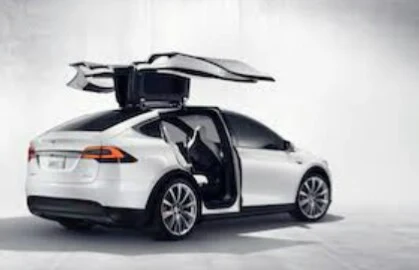Electric Vehicle
Global leader in the adoption and promotion of electric vehicles
Norway has emerged as a global leader in the adoption and promotion of electric vehicles (EVs), setting an inspiring example for sustainable transportation worldwide.
With ambitious government policies, robust charging infrastructure, and strong public support,
Norway has revolutionized its automotive landscape, paving the way for a greener and more sustainable future. In this article, we delve into the reasons behind Norway's success, explore the benefits of electric vehicles, and examine the country's ongoing efforts to accelerate the transition towards a zero-emission transport system.
Government Policies Driving EV Adoption:
Norway's commitment to environmental sustainability is reflected in its forward-thinking policies aimed at encouraging the adoption of electric vehicles. The government has implemented a range of incentives, including generous tax exemptions, toll road discounts, and reduced parking fees for EV owners. These incentives have effectively leveled the playing field, making electric vehicles financially attractive and encouraging consumers to make the switch from traditional internal combustion engine (ICE) vehicles.
Furthermore, Norway has set ambitious goals to phase out sales of new petrol and diesel cars by 2025. This has provided a clear roadmap for automakers, enabling them to plan their strategies accordingly. With such a strong political commitment, automakers have responded by introducing a wide range of electric vehicle models tailored to the Norwegian market, further fueling consumer demand.
Robust Charging Infrastructure:
One of the critical factors driving the widespread adoption of electric vehicles in Norway is the country's comprehensive charging infrastructure. Norway boasts a vast network of charging stations, making it convenient for EV owners to charge their vehicles both at home and on the go. The government, in collaboration with private entities, has invested heavily in expanding the charging network, ensuring that electric vehicle drivers have easy access to charging facilities throughout the country.
Fast-charging stations are strategically located along major highways, allowing for long-distance travel without range anxiety. Moreover, workplaces, shopping centers, and residential areas are equipped with charging points, making it effortless for EV owners to charge their vehicles during their daily routines. The accessibility and reliability of the charging infrastructure have played a crucial role in instilling confidence in electric vehicle ownership.
Environmental and Economic Benefits:
The transition to electric vehicles in Norway has yielded numerous environmental and economic benefits. The primary advantage is the substantial reduction in greenhouse gas emissions. EVs produce zero tailpipe emissions, thereby significantly improving air quality and reducing the country's carbon footprint. Norway's commitment to renewable energy sources, such as hydropower, further enhances the environmental benefits of electric vehicles, as the energy used to charge them is clean and sustainable.
Additionally, the shift towards electric vehicles has created new economic opportunities. Norway's early adoption of EVs has fostered a thriving market for electric vehicle technologies and infrastructure. Several Norwegian companies have emerged as leaders in the production of EV batteries, charging solutions, and software platforms, contributing to the country's economic growth and job creation.
Ongoing Efforts and Future Outlook:
Norway's journey towards a zero-emission transport system is far from over. The government is continuously working to improve and expand the charging infrastructure, ensuring that it keeps pace with the growing number of electric vehicles on the road. Additionally, the focus has shifted towards addressing the environmental impact of EV production and battery disposal, encouraging the development of more sustainable practices across the entire lifecycle of electric vehicles.
Norway's success in promoting electric vehicles serves as a valuable lesson for countries around the world. By implementing comprehensive government policies, investing in charging infrastructure, and fostering public support, nations can accelerate the transition towards sustainable transportation and contribute to global efforts in combating climate change.
Norway's remarkable achievements in Electric Vehicle
Norway's remarkable achievements in the electric vehicle sector highlight the transformative potential of sustainable transportation.
The combination of supportive government policies, a robust charging infrastructure, and a commitment to renewable energysources has propelled Norway to the forefront of the electric vehicle revolution.
Norway's Remarkable Achievements in Electric Vehicles
| Feature | Norway |
|---|---|
| Market Share | The highest EV adoption rate globally, with electric vehicles making up a significant portion of new car sales. |
| Government Incentives | Strong government policies, including tax exemptions, subsidies, and free road tolls for electric vehicles. |
| Infrastructure | Extensive charging network, with public charging stations readily available throughout the country. |
| Leading Brands | Popular brands include Tesla, Volkswagen, and Audi, with a focus on electric and hybrid models. |
| Environmental Focus | Norway has ambitious climate goals and prioritizes sustainable transportation, making EVs a natural choice. |
| Challenges | While adoption is high, challenges remain in terms of charging infrastructure in rural areas and the availability of affordable electric vehicles for all income levels. |
| Unique Initiatives | Norway has implemented unique initiatives, such as electric ferries and electric buses, to promote sustainable transportation. |
The country's holistic approach has not only reduced emissions and improved air quality but also created economic opportunities and paved the way for a greener future.
As other countries strive to replicate Norway's success, there are valuable lessons to be learned. Firstly, government support and incentives play a crucial role in accelerating electric vehicle adoption. By implementing policies that make EVs financially attractive and setting clear targets for phasing out fossil fuel vehicles, governments can provide the necessary framework for a sustainable transition.
Secondly, a robust charging infrastructure is essential for widespread electric vehicle adoption. Norway's extensive network of charging stations ensures that EV owners have convenient access to charging facilities, reducing range anxiety and enabling long-distance travel. Governments and private entities should invest in expanding charging infrastructure, prioritizing fast-charging stations along major highways and strategically placing charging points in residential areas, workplaces, and public spaces.
Furthermore, collaboration between the public and private sectors is crucial for success. Norway's government has worked closely with automakers, charging infrastructure providers, and energy companies to create a supportive ecosystem for electric vehicles. This collaboration has fostered innovation, encouraged technological advancements, and boosted the growth of local industries.
The environmental and economic benefits of electric vehicles cannot be overstated. By reducing greenhouse gas emissions and air pollution, electric vehicles contribute to mitigating climate change and improving public health. The economic benefits include job creation, investment in clean technologies, and reduced dependence on imported fossil fuels.
Looking ahead, Norway's commitment to sustainable transportation remains steadfast. The government's focus has expanded to encompass the entire lifecycle of electric vehicles, from production to disposal. Efforts are being made to promote the use of sustainable materials in manufacturing, improve recycling processes for batteries, and explore innovative solutions for second-life applications of used EV batteries.
Norway's electric vehicle success story serves as an inspiration and a roadmap for other countries embarking on the path to sustainable transportation. By adopting a comprehensive approach that combines supportive policies, robust infrastructure, and a commitment to renewable energy, nations can accelerate the transition to electric vehicles and contribute to a greener, more sustainable future for all.
As the world faces the urgent challenges of climate change, Norway's achievements demonstrate that a cleaner, greener transport system is not only possible but also beneficial. By embracing electric vehicles and investing in sustainable transportation solutions, we can create a healthier, more environmentally friendly world for generations to come. Norway's example should serve as a rallying call for countries worldwide to accelerate their efforts towards a zero-emission future, where electric vehicles play a central role in transforming the way we move.
Infrastructure for Electric Vehicle in Norway
Norway has been at the forefront of electric vehicle (EV) infrastructure development and adoption.
The country has made significant progress in creating a supportive environment for electric vehicles.
Here are some key aspects of EV infrastructure in Norway:
1. Charging Stations: Norway has an extensive network of public charging stations for electric vehicles. These charging stations are available in cities, towns, and along major highways, making it convenient for EV owners to charge their vehicles. Both fast-charging stations (DC chargers) and slow-charging stations (AC chargers) are available.
2. Incentives: The Norwegian government has provided generous incentives to promote EV adoption. These incentives have included tax exemptions, reduced registration fees, reduced toll charges, free ferry transport, and access to bus lanes, among others. These benefits have encouraged more people to switch to electric vehicles.
3. Subsidies and Rebates: In addition to incentives for EV buyers, Norway also offers subsidies and rebates for installing home charging stations. This further encourages individuals to go electric and facilitates home charging convenience.
4. Battery Swapping: Some locations in Norway have experimented with battery swapping stations. This allows EV owners to exchange their depleted battery for a fully charged one, reducing charging time and range anxiety.
5. Green Energy: Norway generates a significant portion of its electricity from renewable sources, especially hydropower. This means that the electricity used to charge electric vehicles is often sourced from clean and green energy, reducing the overall carbon footprint of EVs.
6. Public Policy: The Norwegian government has set ambitious targets for transitioning to electric vehicles. They have planned to phase out the sale of new gasoline and diesel vehicles by 2025, further emphasizing their commitment to sustainability and reducing emissions.
7. Private Initiatives: Various private companies and organizations in Norway have also invested in EV charging infrastructure, expanding the charging network and enhancing accessibility for EV owners.
8. Education and Awareness: The government and various organizations have undertaken awareness campaigns to educate the public about the benefits of EVs and the available charging infrastructure.

.jpg)

